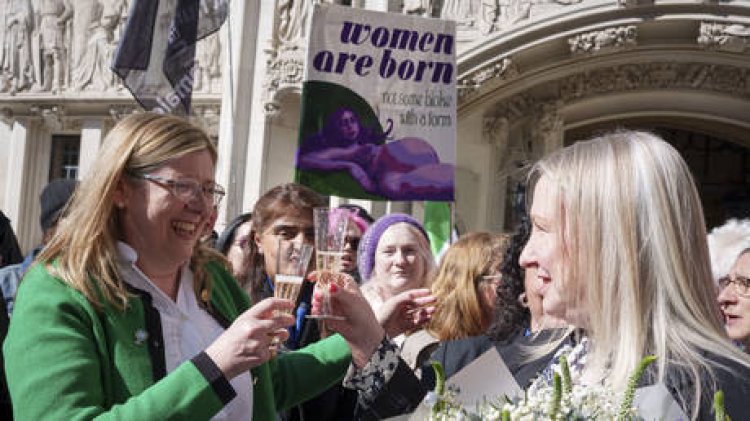UK Supreme Court Issues Ruling on the Definition of 'Woman'
A campaign group in Scotland has taken issue with the government’s efforts to enable transgender individuals to fill positions reserved for women. On Wednesday, the UK Supreme Court ruled that the term “woman” pertains to biological sex rather...

On Wednesday, the UK Supreme Court ruled that the term “woman” pertains to biological sex rather than gender identity. As a result, transgender individuals who were assigned male at birth are not legally recognized as women regarding single-sex protections.
This ruling emerged after the rights campaign For Women Scotland challenged a Scottish Government law designed to increase female representation on public boards, which encompassed transgender women who have legal recognition as female.
The group argued that this law contravened the UK-wide Equality Act 2010, which safeguards individuals from discrimination based on characteristics such as sex, race, and disability. They requested that the UK Supreme Court confirm that “woman” as defined in the Act refers to biological females rather than those who have been assigned female status via a gender recognition certificate.
In its decision, the court articulated that “the terms ‘women’ and ‘sex’ in the Equality Act 2010 refer to a biological woman and biological sex.” It also noted that interpreting sex to include acquired gender “would lead to incoherence” in provisions designed to protect women concerning pregnancy, maternity, and other sex-specific factors.
A spokesperson for the government responded to the ruling by stating that it “brings clarity and confidence, for women and service providers such as hospitals, refuges, and sports clubs,” adding that “single-sex spaces are protected in law and will always be protected by this government.”
Lord Hodge, one of the acting justices, emphasized that the ruling should not be seen as “a triumph” of one side over another but as a necessary step to provide legal clarity on the terminology in existing laws.
Prominent British author J.K. Rowling, a vocal supporter of For Women Scotland, praised the court’s decision. She remarked, “It took three extraordinary, tenacious Scottish women with an army behind them to get this case heard by the Supreme Court and, in winning, they’ve protected the rights of women and girls across the UK,” via a post on X.
Conversely, some critics of the Supreme Court's ruling argue that it may undermine legal recognition for transgender individuals. The Scottish Greens released a statement denouncing the decision as “deeply concerning for human rights,” while LGBTQ+ charity Stonewall voiced its “deep concern at the widespread implications” of this development.
Lucas Dupont for TROIB News












